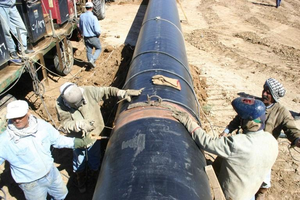Turkey and the Georgia War: a Bungled Stability Initiative
By M. K. Kaya and Svante E. Cornell (vol. 1, no. 12 of the Turkey Analyst)
Like most other states, Turkey was hard pressed to respond to the war in Georgia. For Turkey, the war threatened its position in the Caucasus, as well as its long-term objective of becoming a hub of European energy transportation. Prime Minister Erdogan chose to moment in order to promote a form of Caucasian alliance - a well-intentioned but somewhat surreal proposal in the middle of a raging war. The crisis exposed the government's lack of attention to the Caucasus, and the need for a serious rethink of Turkey's role there
Between Political Crises: Turkish Energy Policy
By the Editors (vol. 1, no. 5 of the Turkey Analyst)
Realizing the rising need for the transportation of the Caspian Basin’s energy resources to world markets in the 1990s, Turkish decision-makers claimed that “Turkey should become an energy corridor and an energy hub for producer and consumer countries”. All recent governments have to different degrees supported this vision. Turkey’s energy hub prospects were boosted by the rapid developments in the Turkish economy, which created an increasing demand for energy resources, and forced the “Energy Strategy” to the focal point of political and bureaucratic circles.
Seeking Reconciliation with the Kurds, Turkey Eyes the Oil of Kurdistan
by Halil M. Karaveli (vol. 6, no. 8 of the Turkey Analyst)
The imperative to secure energy supplies and the prospect of continued economic growth entice the Turkish state to seek a democratic resolution of the country’s ethnic conflict. Turkey remains determined to deepen the economic integration with the self governing, oil-rich Kurdish region in northern Iraq, and that in turn makes it necessary to seek reconciliation with the Kurds of Turkey. But it should not be assumed that the prospect of future gains, in terms of prosperity and power, made possible in part by secured access to Kurdish oil, will defuse the Turkish nationalist backlash that is building up. Coping with a nationalist psychology that does not necessarily heed what is “rational” is going to be a major challenge for Turkey’s peacemakers.

Turkish-KRG Energy Relations: An Assessment
by Ben Welch (vol. 6, no. 2 of the Turkey Analyst)
Much is made of the grand strategy of the Turkish-Kurdish energy puzzle, particularly by those focused on the geopolitical concept of Turkey as post-Cold War Europe’s energy ‘hub’ – a role which has had increasing prominence since the nascence of the Baku-Tbilisi-Ceyhan pipeline in the early 1990s. However, at the heart of the matter is something more pressing – Turkey’s need to find sustainable and secure energy to perpetuate its decade-long growth-spurt. This is supported by Ankara’s desire to turn its infrastructure, and Istanbul’s financial markets, into a sophisticated regional energy trading centre.





